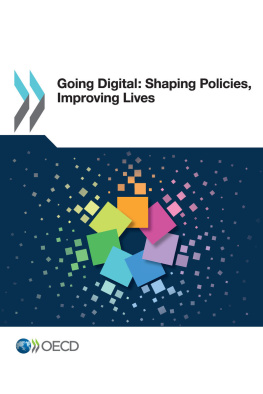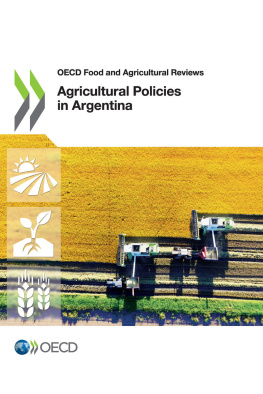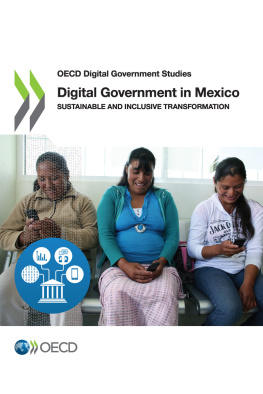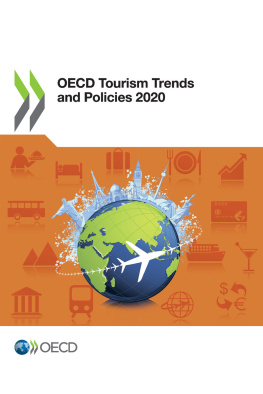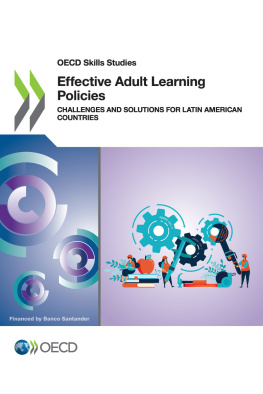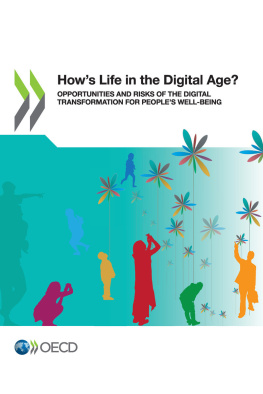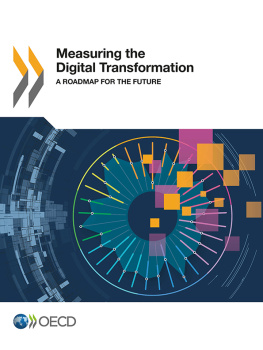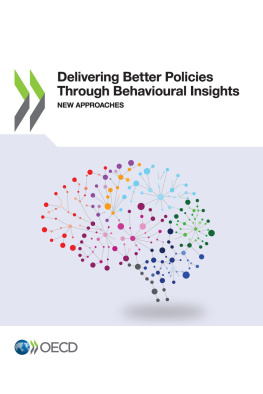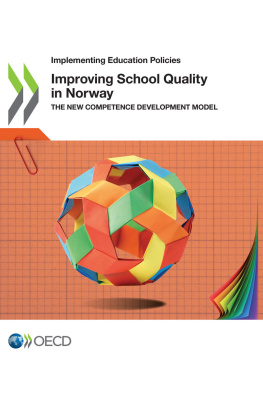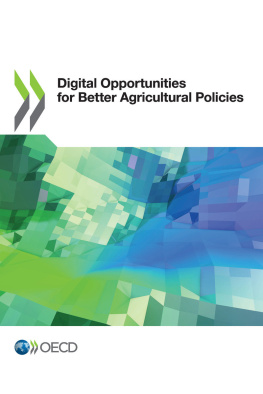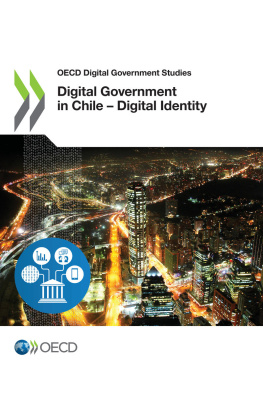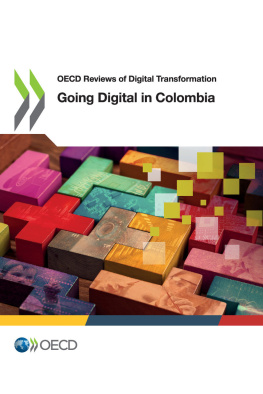OECD - Going Digital: Shaping Policies, Improving Lives
Here you can read online OECD - Going Digital: Shaping Policies, Improving Lives full text of the book (entire story) in english for free. Download pdf and epub, get meaning, cover and reviews about this ebook. year: 2019, publisher: OECD Publishing, genre: Politics. Description of the work, (preface) as well as reviews are available. Best literature library LitArk.com created for fans of good reading and offers a wide selection of genres:
Romance novel
Science fiction
Adventure
Detective
Science
History
Home and family
Prose
Art
Politics
Computer
Non-fiction
Religion
Business
Children
Humor
Choose a favorite category and find really read worthwhile books. Enjoy immersion in the world of imagination, feel the emotions of the characters or learn something new for yourself, make an fascinating discovery.
Going Digital: Shaping Policies, Improving Lives: summary, description and annotation
We offer to read an annotation, description, summary or preface (depends on what the author of the book "Going Digital: Shaping Policies, Improving Lives" wrote himself). If you haven't found the necessary information about the book — write in the comments, we will try to find it.
OECD: author's other books
Who wrote Going Digital: Shaping Policies, Improving Lives? Find out the surname, the name of the author of the book and a list of all author's works by series.
Going Digital: Shaping Policies, Improving Lives — read online for free the complete book (whole text) full work
Below is the text of the book, divided by pages. System saving the place of the last page read, allows you to conveniently read the book "Going Digital: Shaping Policies, Improving Lives" online for free, without having to search again every time where you left off. Put a bookmark, and you can go to the page where you finished reading at any time.
Font size:
Interval:
Bookmark:
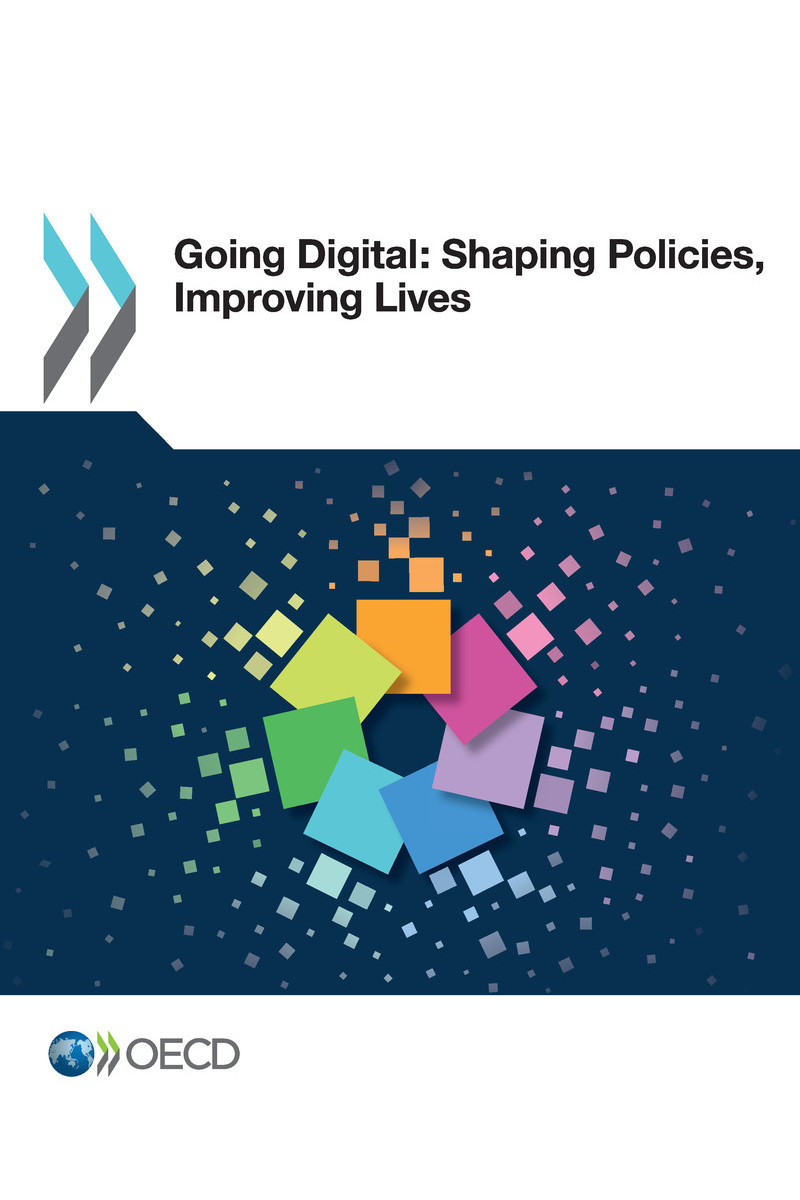
OECD (2019), Going Digital: Shaping Policies, Improving Lives , OECD Publishing, Paris.
https://doi.org/10.1787/9789264312012-en
Economies, governments and societies across the globe are going digital. Although already underway for nearly half a century, the pace of change has quickened, as digital technologies develop rapidly and combine in novel and innovative ways, pushing digital transformation in new and often unpredictable directions. At the same time, the further deployment of communications infrastructure, the proliferation of digital technologies such as smart phones that allow ubiquitous computing, and the generation of huge volumes of data of all kinds, are turning data into an important, strategic asset. Digital technologies and large-scale data flows fundamentally change how people live and work, interact with one another, participate in the economy, and engage with the government.
Many now compare digital transformation with earlier industrial transformations propelled by general-purpose technologies like steam or electricity. Whether it is the Second Machine Age, the Third Wave, Industrie 4.0 or Society 5.0, significant shifts are underway. Digital transformation affects all countries across the globe, and the importance of digital technologies is underscored in the United Nations Sustainable Development Goals, where access to information and communication technologies and universal and affordable access to the Internet is one of the key targets to transform our world.
The ongoing digital transformation of the economy and society holds many promises to spur innovation, generate efficiencies, and improve services, and in doing so boost productivity growth. Digital technologies also make it easier for people to participate in economic and social activities. Yet such benefits come with new challenges as digital transformation changes the nature and structure of organisations, markets and communities, and raises concerns around jobs and skills, privacy and security, as well as notions of equity and inclusion.
Realising the opportunities and addressing the challenges is not automatic and may require policy action to make digital transformation work for growth and well-being. There is currently a window of opportunity for individuals, governments and all stakeholders to shape a digital future that makes the most of the immense opportunities that digital transformation holds to improve peoples lives, while ensuring that no one is left behind.
This report brings together what we know about how policy can help as well as areas and issues we need to better understand to ensure that digital transformation benefits all by increasing growth and improving well-being. It reflects the work undertaken in the OECDs Going Digital project over 2017-18 as well as other relevant OECD work on digital transformation. It aims to increase an understanding of the drivers of digital transformation, and offers a whole-of-economy and society perspective on key digital trends, impacts, and issues that require co-ordinated policy action. It also sets out an ambitious future digital agenda for the OECD and beyond.
This report presents key insights and policy messages from the OECD Going Digital project, which was carried out over 2017-18 under the leadership of the OECD Committee on Digital Economy Policy, chaired by Wonki Min (Korea). The OECD Going Digital project is led by the OECD Directorate for Science, Technology and Innovation, under the leadership and guidance of Andrew Wyckoff, Director; Dirk Pilat, Deputy Director; and Anne Carblanc, Head of the Digital Economy Policy Division. Molly Lesher served as the Project Co-ordinator of the first phase (2017-18) of the project.
This report was co-ordinated and drafted by Molly Lesher, David Gierten and Angela Attrey. It draws on contributions from the OECD Secretariat from nine OECD Directorates, including the Directorate for Science, Technology and Innovation (Brigitte Acoca, Matej Bajgar, Laurent Bernat, Frdric Bourassa, Sarah Box, Sara Calligaris, Flavio Calvino, Franois Chantret, Agns Cimper, Alessandra Colecchia, Chiara Criscuolo, Gallia Daor, Timothy DeStefano, Michael Donohue, Alexia Gonzalez-Fanfalone, Dominique Guellec, Peter Horvt, Nick Johnstone, Daniel Ker, Elif Kksal-Oudot, Anna-Sophie Liebender, Christopher Lomax, Luca Marcolin, Pierre Montagnier, Alistair Nolan, Sam Paltridge, Caroline Paunov, Karine Perset, Lorrayne Porciuncula, Carthage Smith, Vincenzo Spiezia, Christian Reimsbach-Kounatze, Elettra Ronchi, Mariagrazia Squicciarini, Jonathan Timmis, Kila Walser, Colin Webb, Verena Weber and Jeremy West); the Centre for Tax Policy and Administration (Andrew Auerbach, David Bradbury, Julien Jarrige, Giorgia Maffini, Caroline Malcolm and Anna Milanez); the Statistics and Data Directorate (Nadim Ahmad, Fabienne Fortanier, John Mitchell, Fabrice Murtin, Jennifer Ribarsky, Paul Schreyer, Vincent Siegerink, Peter van de Ven and Jorrit Zwijnenburg); the Economics Department (Peter Gal, Giuseppe Nicoletti, St phane Sorbe and Christina Timiliotis); the Directorate for Education and Skills (Stphanie Jamet, Deborah Roseveare and St phan Vincent-Lancrin); the Directorate for Employment, Labour and Social Affairs (Stijn Broecke and Paolo Falco); the Directorate for Financial and Enterprise Affairs (Sean Ennis, Stephen Lumpkin, Mathilde Mesnard, Flore-Anne Messy and Gert Wehinger); the Directorate for Public Governance (Jack Radisch, Jacob Arturo Rivera Prez, Barbara Ubaldi and Jo o Vasconcelos); and the Trade and Agriculture Directorate (Rachel Bae, Francesca Casalini, Gwendolen Deboe, Janos Ferencz, Javier L pez Gonz lez, Marie-Agnes Jouanjean, Julia Nielson and Hildegunn Kyvik Nords). Other OECD Directorates and bodies that were actively involved in the OECD Going Digital project include the Environment Directorate (Shardul Agrawala, Elisabetta Cornago and Tobias Udsholt); the International Energy Agency (Jan Bartos, Simon Bennett, Laura Cozzi, George Kamiya, Luis Munuera and Dave Turk); the Centre for Entrepreneurship, SMEs, Regions and Cities (Marco Bianchini and Lucia Cusmano); the Foresight Unit of the Office of the Secretary-General (Duncan Cass-Beggs, Joshua Polchar and Julia Staudt); and the International Transport Forum (Tom Voege).
Font size:
Interval:
Bookmark:
Similar books «Going Digital: Shaping Policies, Improving Lives»
Look at similar books to Going Digital: Shaping Policies, Improving Lives. We have selected literature similar in name and meaning in the hope of providing readers with more options to find new, interesting, not yet read works.
Discussion, reviews of the book Going Digital: Shaping Policies, Improving Lives and just readers' own opinions. Leave your comments, write what you think about the work, its meaning or the main characters. Specify what exactly you liked and what you didn't like, and why you think so.

